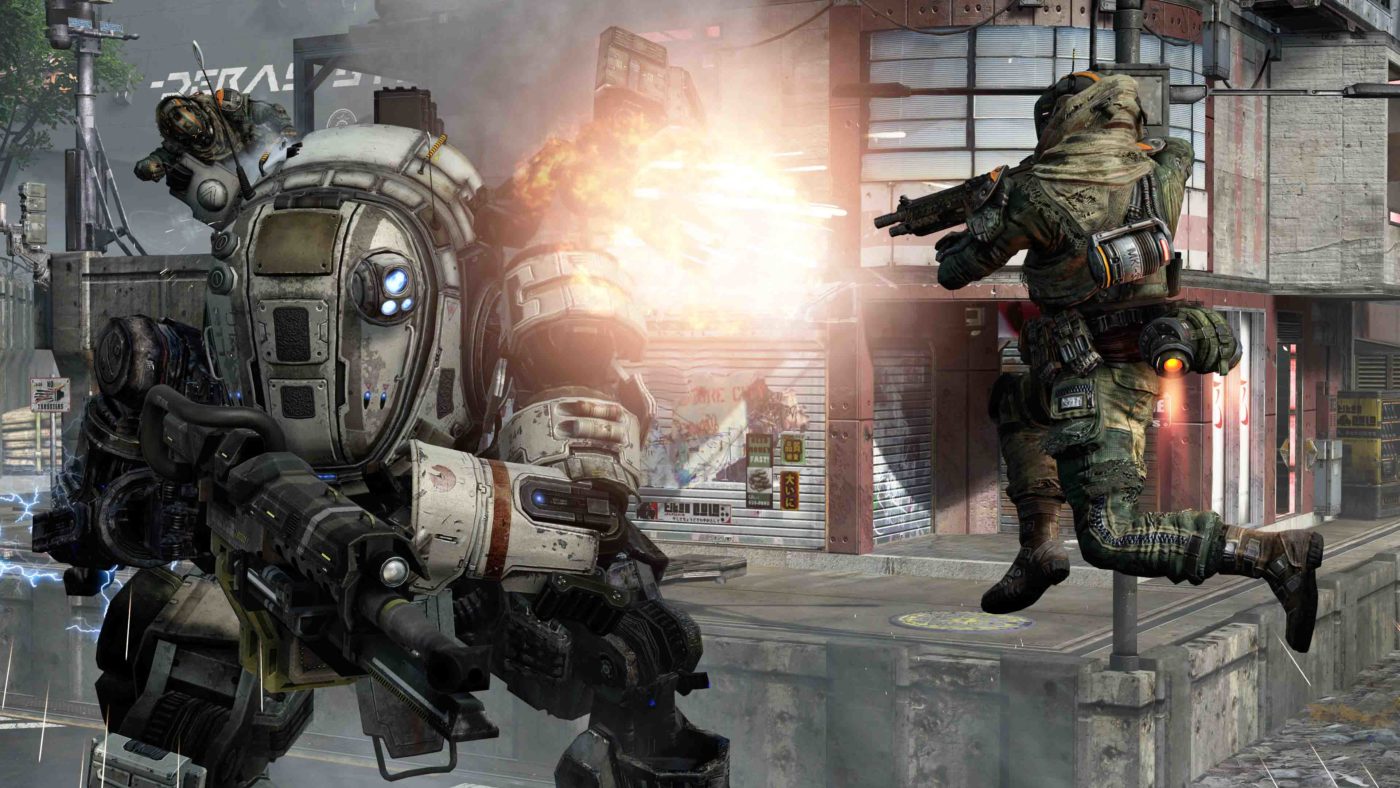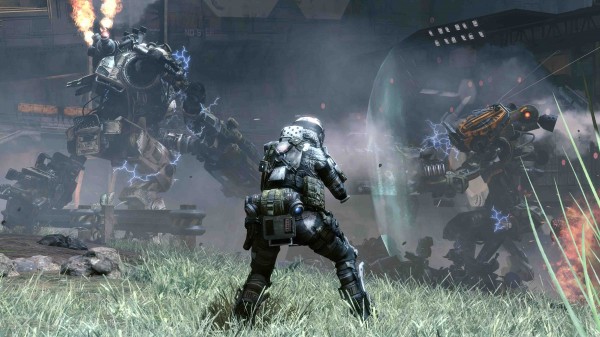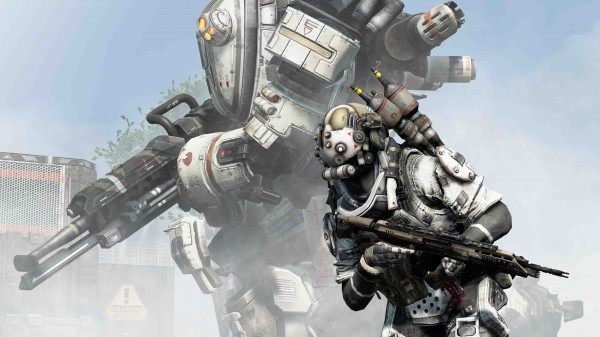Earlier this month, MP1st got some hands-on time with Respawn Entertainment’s upcoming Xbox One, Xbox 360, and PC shooter, Titanfall.
If you haven’t yet, be sure to catch our Titanfall Preview where we ask if the game’s addicting and accessible formula will be hardcore enough for the more intermediate to advanced first-person shooter players out there.
Amidst the fury that was my exciting play time with Titanfall on the Xbox One, I learned that I would have the chance to speak to one of the game’s developers, so I quickly threw together a few questions to ask Mr. Steve Fukuda, Game Director on Titanfall.
Sadly, inquiries about the Xbox 360 version of the game were off the table, as were inquiries about the official number of maps and game modes available in Titanfall. Nevertheless, read on to hear what Mr. Fukuda – an original ex-Infinity Ward developer who worked on classic titles from Medal of Honor: Allied Assault through to Call of Duty: Modern Warfare 2 – had to say about Pilot-only game modes, Titan customization, AI, and working with the Source engine.
MP1st: Thanks for talking to us today, Steve.
A unique aspect of Titanfall is the introduction of AI fighting along side real players, something that Multiplayer Online Battle Arena games have done rather successfully so far. Were MOBAs an influence over the way you and your team implemented AI into Titanfall’s gameplay?

MP1st: You have Last Titan Standing, a game mode where everyone starts off in a Titan and fights to the bitter end. Will there be any Pilot vs. Pilot-only game modes, or would that mess with the mechanics you guys have built into the game already?
SF: We’ve talked about these kinds of things. We haven’t gone forward with any of it. It’s something that’s sort of bouncing in our heads and we talk about it and we discuss whether that is the right direction.
MP1st: In a way, Titans are like your car in a racing game. I know it was mentioned that micro-transactions wouldn’t be a part of the game, but it would be really cool to personalize your Titan beyond loadouts. Do you think we might get any of that in Titanfall?
SF: Nothing is off the table. I can’t really speak to that in particular, but talk of such things comes up from time to time. Still trying to decide if that’s the right direction.
MP1st: Can you talk a little more about Burn cards? What do they do, how do you earn them, and what’s their purpose?
SF: They’re something that Mackey McCandlish, one of our designers, came up with. It was his sort of his baby and he really wanted to create this sort of thing where players were motivated to stay alive and not just suicide themselves and bombing constantly. Part of that is because our game is predicated on having fights, as opposed to ‘I-see-you-and-you-die’ type of experiences. And that makes for a much more interesting series of battles and you’ll always have an interesting story to tell about your last fight. So, part of it was that – to allow people to try and stay alive longer – and the other one was this concept of randomness. And randomness, when done right, can sometimes make the game more fun and it can actually make it fun for people who are perhaps not doing as well and not as experienced. So, we have Burn Cards like, here’s an Amped R-101C, which is an assault rifle, here’s a free Titan, here’s a Burn Card that gives you double XP.
So, the way they work is you equip yourself a free Burn Card at the beginning of the match, or in a lobby. When you get into a match, you can use up to three throughout the course of match. Every time you use one (you use one at a time), until you die, the effects of that card remain working. So, try to stay alive. If it’s a round-based situation like Last Titan Standing, the Burn Card continues on round after round, etc. until you die or the match ends. It’s a great way to sort of let people be extra powerful for a short period of time without totally unbalancing the game.
MP1st: A lot of gamers criticize the Source engine for being outdated. Why did you decide to build Titanfall upon it and what was it like working with it?
SF: Well we looked at a lot of different engines, but what ultimately sort of tipped things in Source’s favor was the designers. We were all very much trying to experiment and prototype and Source was something that had a lot of familiar elements. A lot of us come from Quake and other modding backgrounds, but a lot of us have worked with that engine to some extent on our own. So, we did a lot of interesting what I call “Rube Golberg” experiments because of the nature of how all things are connected. If you’ve ever done any modding in the Source engine, then you’ll find there’s a lot of manual hooking up of things inside the editor. One of the examples I like to give is, one of our designers, Chriss Dionne “Soupy”, he created a prototype of this Vortex Blocker. He faked it, completely, with a lot of intricate entity connections in a very rudimentary form, and it’s really cool to see how a long list of experiments in the Source engine have filtered away or survived evolutions into the final shipped game.
So, all this done with the engine in a very funky, kind of tricky “Rube Goldberg” way, but it was effective. It made it possible for everyone to design – to prototype various mechanics of gameplay – and try things out and then show them to other people very quickly. They were some valuable lessons.
MP1st: Thanks again for talking with us, Steve.
Titanfall launches on the Xbox One and PC March 11 with a beta taking place this Friday, February 14. Titanfall’s Xbox 360 version, developed by Bluepoint Games, launches on March 25.
For all things Titanfall, keep your sights locked on MP1st.


